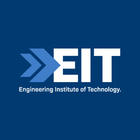Doctor of Engineering
Doctor of Engineering
Graduates of the Doctor of Engineering (DEng) will be able to make original and significant contributions to the development, application, and evaluation of professional knowledge by engaging with practical problems of demonstrated importance to their employment context and the wider body of engineering and technical knowledge. Program Details Successful completion…
Categories
COURSE DESCRIPTION
Graduates of the Doctor of Engineering (DEng) will be able to make original and significant contributions to the development, application, and evaluation of professional knowledge by engaging with practical problems of demonstrated importance to their employment context and the wider body of engineering and technical knowledge.
Program Details
Successful completion of the course will equip the graduate to take a leading role in the development of research investigations into current and future problems of industrial and community concern within their area of expertise. The program will give candidates the skills and experience to act as independent researchers or group leaders for investigations of practical importance in their professional area over their professional life.
The doctorate will run over three years (with four 12-week terms per year). The first year consists of four academic coursework units and a research project proposal, which allows candidates to demonstrate their aptitude for research by undertaking a state-of-the-art literature review. This extends knowledge and skills attained in their undergraduate program and the four foundation doctoral units.
The second year of the DEng will require the candidate to successfully complete a further four units (two course work and two research units) that will address deeper concepts in their discipline area. Each of these units will have a significant research component as required by AQF Level 9/10. Complex theory will be applied to current industry problems. The synergies and importance of theoretical constructs to professional practice will be explored in detail. The second year has the important objective of providing the candidate with appropriate skills and expert knowledge to undertake a doctoral-level dissertation in the final year with the requisite rigor. This includes identifying a suitable research problem and undertaking an introductory literature review relative to the chosen topic.
The third year of the Doctorate of Engineering is the dissertation year. Here the candidate will be expected to extend their work on the project that they have developed over the first and second year. The candidate will draw upon the research training, course learning, and research undertaken during the second year, to support this substantive body of work at AQF Level 10. This must make a significant and original contribution to knowledge in the context of professional practice. In other words, the doctoral candidate must create new knowledge that can be applied in an industrial context. Academic supervision, coupled with guidance from an industry advisor, will be an integral part of this program.
Program Structure
The program contains 120 credit points and has a duration of three years’ full-time or the equivalent part-time. Students must complete 16 credit points (four units) and one Research Project Proposal in the first year. The Research Project Proposal is the equivalent of 12 credit points. The second year has a further four units totalling 44 credit points. Two of these units are research-based. The third year is fully occupied with the doctoral Dissertation, which is 48 credit points. At the successful conclusion of these three years, the doctorate is completed.
REQUIREMENTS
To be eligible for admission, applicants must satisfy the following requirements:
BE Honours, Graduate Diploma (or equivalent) with minimum Second-Class Honours Division A (H2A). OR
An appropriate and relevant Master’s degree from EIT or other recognized tertiary institution. OR
Satisfying the Dean (or delegate) of their fitness to undertake further advanced work. This would be established by:
a)Relevant four-year undergraduate qualification from a recognized institution. AND
b)Submission of a resume demonstrating, at least five years of professional practice in a relevant field with the ability to demonstrate, or be in a position to produce their own substantial, original professional contributions in the relevant engineering field and/or published research work.
AND
c) A minimum overall IELTS score of 6.5 with no band score less than 6.0 (or equivalent test result).
EDUCATIONAL INSTITUTION
The Engineering Institute of Technology (EIT) delivers industry driven programs to equip its students with the skills required in the real industrial world. Its study options are available across Perth and Melbourne; and include classroom sessions, practical lab exercises, assessments, class discussions and self-study. Additionally, students enjoy access to industry experts based around the globe through live and interactive online presentations. All EIT programs provide access to remote laboratories and cutting-edge simulation software. Hands-on laboratory practicals are an essential component of EIT’s programs to ensure students put theory into practice. These hands-on workshops cover the major discipline-specific applied skills required for competency in engineering practice.




